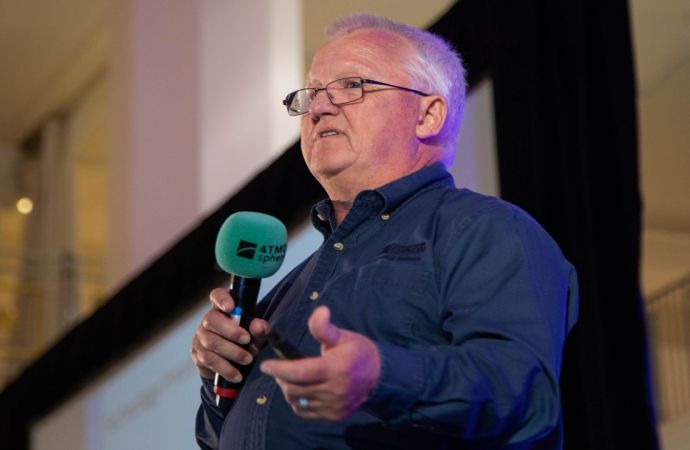The future EU F-Gas Regulation currently considered by EU institutions has been a key discussion topic at the ATMOsphere Europe 2013 that gathered over 200 decision makers from all major stakeholder groups. Industry representatives but also end users communicated their preference for clear sector-specific F-Gas bans that would give the growing European natural refrigerant industry certainty and the impetus to become technology leaders internationally.

The European Commission, the European Parliament and the Council of the EU have just entered negotiations on the F-Gas Regulation Review, in which they need to come to an agreement on various provisions that are currently on the table (e.g. HFC bans, phase-down, training on alternatives…). ATMOsphere Europe 2013 conference brought together the key policy-makers from all three institutions to discuss the future of the F-Gas legislation. The industry had the opportunity to provide their views and give feedback in this critical time when the discussions are soon reaching the final stage.
400+ companies in Europe working with natural refrigerants today
Already today there are over 400 European companies working with natural refrigerants, highlighted Marc Chasserot, shecco’s Managing Director in his opening speech. Evidence shows that these companies are present not only in the North, but also in Southern European countries, hence a strong regulatory framework would also benefit the economies and increase the competitiveness of Southern European countries.
As a result of greater activity in the field of natural refrigerant industry, technology is becoming increasingly available for different applications.
Regulatory pressure will stimulate innovation
Jo Leinen, Member of the European Parliament and shadow rapporteur on the EU F-Gas Regulation pointed out that “[the Parliament has] changed the logic of the approach of the European Commission from phasing down to bans with clear dates” so as to give clear signal to the market to shift to alternative technologies.
According to Clare Perry from the Environmental Investigation Agency (EIA) unless there is regulatory pressure, the industry will not invest in alternative technologies and only sector-by-sector bans can stimulate innovation - this is the main missing element in the European Commission’s proposal and the Council’s approach.
Industry believes HFC ban is the most effective measure
Despite the European Partnership for Energy and the Environment (EPEE) argued that the phase-down alone would deliver the necessary emissions reduction, most of the industry representatives thought this would not give them enough clarity. Conference participants from around 100 innovative European companies working with natural refrigerant technologies had an opportunity to contribute to the debate through live polling. Nearly two thirds of those that participated in the polls communicated that they are eager to get clarity and support from the policy-makers in form of sector-specific bans on HFCs in new equipment as the most important measure that will drive the uptake of natural refrigerant technology.
In addition, participants considered the sector of commercial refrigeration, followed by that of stationary AC incl. heat pumps and industrial refrigeration as the three most relevant sectors for which HFC bans would drive innovation and ensure growth of European companies.
Lessons learnt from EU ETS can help avoid overallocation of HFC quotas
Looking at the experience from other regulations, such as the EU Emissions Trading System (ETS), Bas Eickhout, European Parliament’s rapporteur on the F-Gas Regulation also stressed: “We see that if you have a lot of overallocation in the beginning you are keeping problems for later on,” which is why the European Parliament would like to see a stricter phase-down schedule. Another lesson from the ETS relates to allocation of quotas upon a fee so as to avoid windfall profits from grandfathered allowances. According to Bas Eickhout an allocation fee would in addition stimulate the work of companies on the decrease of f-gases.
The Council on the other side has been very reluctant so far to support a price related to quotas, with an exception of few Member States that have been in favour of an auctioning system as a preferred option. According to Samuel Just, Policy Advisor at the French Ministry of Ecology, Sustainable Development and Energy, an allocation mechanism is fair and non-discriminatory with the possibility for any producer or importer to participate. Such a mechanism would limit the market distortions and provide revenues to fund the global reduction of HFCs, Just noted.
400+ companies in Europe working with natural refrigerants today
Already today there are over 400 European companies working with natural refrigerants, highlighted Marc Chasserot, shecco’s Managing Director in his opening speech. Evidence shows that these companies are present not only in the North, but also in Southern European countries, hence a strong regulatory framework would also benefit the economies and increase the competitiveness of Southern European countries.
As a result of greater activity in the field of natural refrigerant industry, technology is becoming increasingly available for different applications.
We are seeing more and more trends towards commercialisation of natural refrigerants, whether it is ammonia, CO2, hydrocarbons, air and water across the board,” he said.
Regulatory pressure will stimulate innovation
Jo Leinen, Member of the European Parliament and shadow rapporteur on the EU F-Gas Regulation pointed out that “[the Parliament has] changed the logic of the approach of the European Commission from phasing down to bans with clear dates” so as to give clear signal to the market to shift to alternative technologies.
Market forces are quite dynamic and innovative to adjust to the regulatory measures,” Leinen said.
According to Clare Perry from the Environmental Investigation Agency (EIA) unless there is regulatory pressure, the industry will not invest in alternative technologies and only sector-by-sector bans can stimulate innovation - this is the main missing element in the European Commission’s proposal and the Council’s approach.
Industry believes HFC ban is the most effective measure
As far as industrial refrigeration is concerned, it is very important for politicians to understand that the industry needs a stable legislative environment. [..] An HFC ban on new industrial refrigeration equipment can be applied today without a problem because natural refrigerants are proven technology in industrial refrigeration and we hope that all the other subsectors of refrigeration will follow very soon,” a representative of a leading industrial system supplier pointed out.
Despite the European Partnership for Energy and the Environment (EPEE) argued that the phase-down alone would deliver the necessary emissions reduction, most of the industry representatives thought this would not give them enough clarity. Conference participants from around 100 innovative European companies working with natural refrigerant technologies had an opportunity to contribute to the debate through live polling. Nearly two thirds of those that participated in the polls communicated that they are eager to get clarity and support from the policy-makers in form of sector-specific bans on HFCs in new equipment as the most important measure that will drive the uptake of natural refrigerant technology.
In addition, participants considered the sector of commercial refrigeration, followed by that of stationary AC incl. heat pumps and industrial refrigeration as the three most relevant sectors for which HFC bans would drive innovation and ensure growth of European companies.
Lessons learnt from EU ETS can help avoid overallocation of HFC quotas
Looking at the experience from other regulations, such as the EU Emissions Trading System (ETS), Bas Eickhout, European Parliament’s rapporteur on the F-Gas Regulation also stressed: “We see that if you have a lot of overallocation in the beginning you are keeping problems for later on,” which is why the European Parliament would like to see a stricter phase-down schedule. Another lesson from the ETS relates to allocation of quotas upon a fee so as to avoid windfall profits from grandfathered allowances. According to Bas Eickhout an allocation fee would in addition stimulate the work of companies on the decrease of f-gases.
The Council on the other side has been very reluctant so far to support a price related to quotas, with an exception of few Member States that have been in favour of an auctioning system as a preferred option. According to Samuel Just, Policy Advisor at the French Ministry of Ecology, Sustainable Development and Energy, an allocation mechanism is fair and non-discriminatory with the possibility for any producer or importer to participate. Such a mechanism would limit the market distortions and provide revenues to fund the global reduction of HFCs, Just noted.
MORE INFORMATION
Related stories



